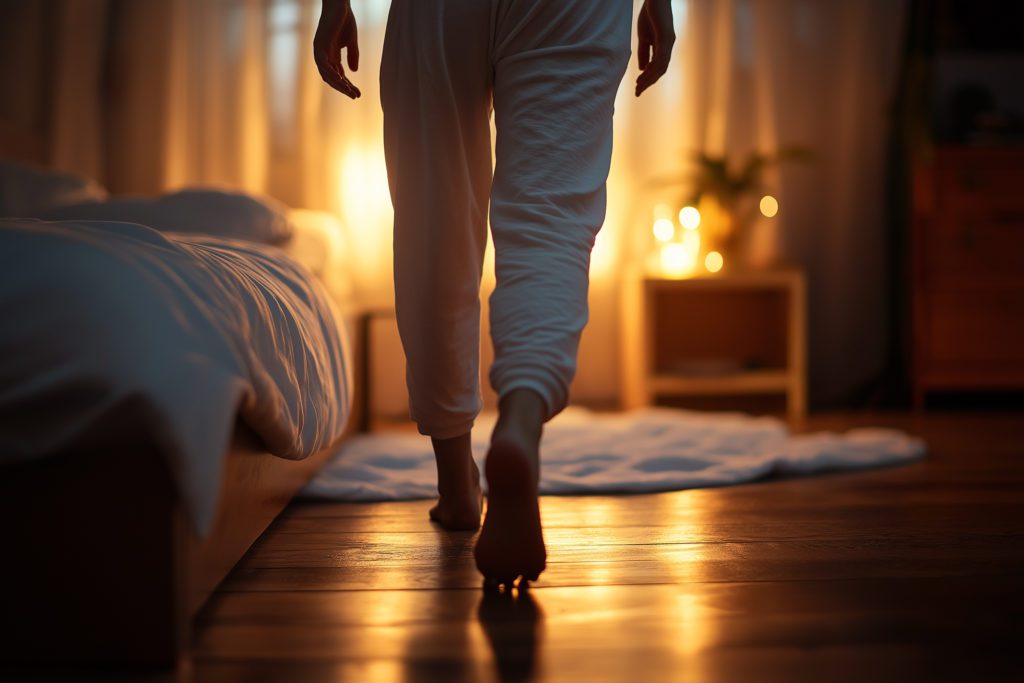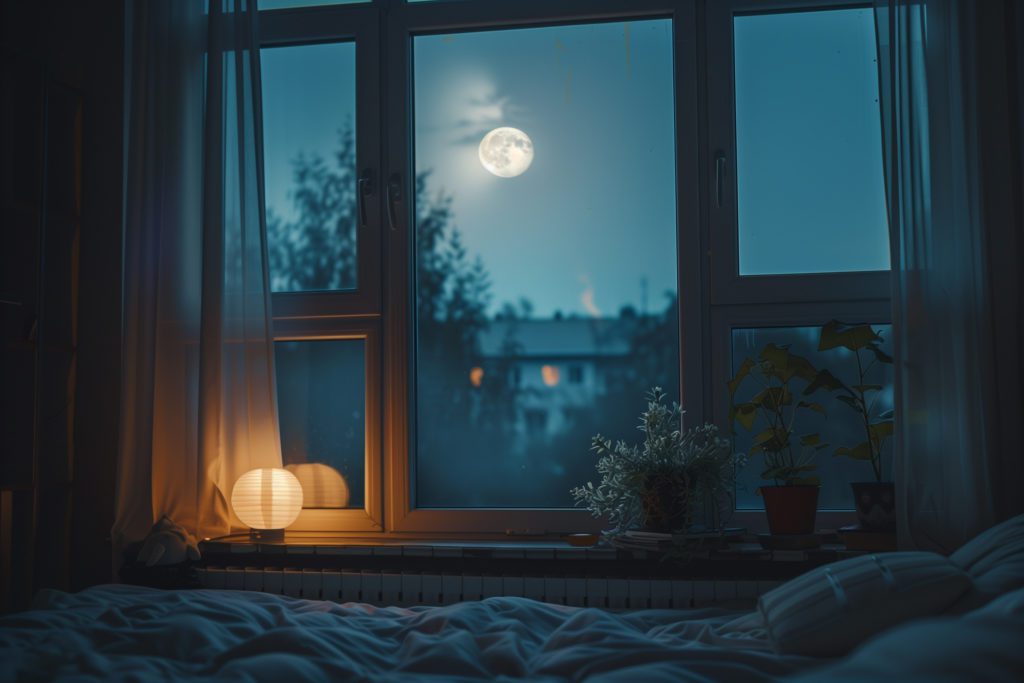
Circadian Rhythm – What It Is and Why It’s Important
Although it may feel like you’re constantly struggling to stay on task and follow a consistent schedule, your body actually has its own natural clock.

You may not hear it tick, but your body’s internal clock causes various physical and mental changes. These changes are referred to as circadian rhythms and can affect you in many ways, including altering your sleep patterns, hormones, and eating habits.
Various internal and external factors may impact circadian rhythms. So, practicing healthy habits is essential to ensure they’re in sync. Keep reading to learn more about your body’s circadian rhythms, how they work, and some tips to keep it on track.
What is a circadian rhythm and how does it work?
Most of the body’s processes follow a natural rhythm with a cycle length of about one day. These cycles are called circadian rhythms and are part of the body’s internal clock. Circadian rhythms run in the background and work to carry out the body and mind’s most essential functions. The primary benefit of these rhythms is that they ensure our body’s processes happen at optimal points during the day.
Circadian rhythms are connected to a master clock in the brain called the suprachiasmatic nucleus, which responds to various environmental cues. Once these cues are recognized, they are translated into commands for the body. The most prominent signal for the master clock is light, which is why circadian rhythms are so closely tied to the day and night cycle.
The sleep-wake cycle is one of the most well-known and best examples of a circadian rhythm. During the day, light exposure triggers the master clock to send a signal to the body that generates alertness, helping keep us active and awake throughout the day. Then, when the sun goes down, the master clock initiates the production of the hormone melatonin, which causes us to feel sleepy and helps us stay asleep throughout the night. Finally, when the sun comes up again, this melanin production is reduced, and we begin to wake up.
Why are circadian rhythms important?
The sleep-wake cycle may be one of the most prominent circadian rhythms, but these 24-hour cycles are essential for virtually every system in the body. In addition, circadian rhythms have played a vital role throughout evolution, allowing both animals and humans to prepare for and adapt to environmental changes.
The National Institute of General Medical Sciences notes that nearly every tissue and organ contain its own biological clock. Other examples of critical circadian rhythms in humans include:
• Immune function
• Body temperature
• Hormonal activity
• Digestion
What can affect circadian rhythm?
Even the most minor changes can throw your circadian rhythms off track. These are the most common factors that can affect your circadian rhythm:
Light
Light is the primary factor controlling the body’s circadian rhythms, and irregularly timed light is a common issue that disrupts the sleep-wake cycle. Using bright lights around two hours before bedtime can be particularly harmful, causing you to fall asleep later in the evening and wake up later in the morning.
Color
Certain colors of lights seem to disrupt circadian patterns. For example, the CDC has warned that blue wavelength light has the most substantial impact, making it more difficult for a person to fall asleep or stay asleep throughout the night. Examples of blue light include most electronic screens, such as smartphones, televisions, and computers.
Unhealthy sleep habits
Poor sleep hygiene can cause a significant upset in the sleep-wake cycle. Effects of unhealthy sleep habits may include drinking alcohol or caffeine close to bedtime, lacking a bedtime routine, having no set sleep time, performing mentally draining activities late in the day, or having an uncomfortable sleeping space.
Shift work
Since the body responds to sunlight, it’s programmed to be awake when it’s light outside. However, if you work late shifts or often work throughout the night, you may experience disruptions in your natural circadian rhythms.
Travel
People who frequently travel often experience disruptions in their sleep and circadian rhythms, especially if they often travel between time zones. Essentially, when you pass through a time zone, you can reset your watch, but your body clock will need some time to adjust. This adjustment period typically leads to “jet lag,” that groggy or tired feeling you experience as your body attempts to reset itself to the new time.
What are the most common circadian rhythm-related sleep disorders?
Specialists have identified several types of circadian rhythm sleep-wake disorders based on their causes and symptoms:
Jet Lag Disorder
Jet lag is one of the most well-known circadian rhythm disorders, typically caused by a person crossing multiple time zones in a short period of time. Until a person’s body adjusts to the new day-night cycle, they will likely suffer from fatigue, grogginess, and sleeping problems. However, in most cases, jet lag is temporary and only lasts a few days.
Shift Work Disorder
You may develop this sleep disorder if you frequently work overnight or rotate shifts. Shift work significantly affects a person’s sleep schedule and puts it directly at odds with their body clock. Left unchecked, this circadian rhythm disruption can result in insomnia, gastrointestinal problems, excessive sleepiness, and mood disorders.
Delayed Sleep Phase Disorder
This disorder is most associated with “night owls,” who often stay up late at night and sleep late in the morning. For example, if you regularly fall asleep around 2 AM or later but sleep in until 3 PM, you may have a delayed sleep phase disorder. Although this is a rare condition, affecting just 1 or 2 people out of every 1,000, research suggests it impacts up to 16% of teens.
Advanced Sleep Phase Disorder
This disorder is the opposite of delayed sleep phase syndrome. People with this type of disruption have trouble staying awake during “normal” times and may fall asleep as early as 7 PM. Advanced sleep phase disorder is more common among seniors but still relatively rare.
Non-24 Sleep Wake Disorder
People with this sleep disorder have a sleep-wake cycle longer than 24 hours. As a result, their sleep and wake hours constantly shift and drift a little each night. This condition is most prominent in people who are blind and occurs due to a lack of light and dark cues to regulate sleep.
Irregular Sleep-Wake Rhythm Disorder
This rare disorder causes people to be unable to have any consistent sleep pattern, no matter how hard they try. So, their bedtimes often occur at random times in a 24-hour period. Irregular sleep-wake rhythm disorder is commonly seen in patients with neurological conditions, such as dementia, or traumatic brain injuries, which hinder the proper functioning of the master clock in the brain.
How to get your circadian rhythm back on track
While it’s impossible to have complete control over your circadian rhythm, there are healthy sleep habits you can practice to help keep your body on track:
- Go to sleep and wake up at the same time every day
- Expose yourself to natural light in the morning
- Get daily exercise, but not too close to bedtime
- Avoid stimulants like alcohol and caffeine, especially close to bedtime
- Limit light, including from electronics, before bed
- Avoid taking long naps or napping later in the day
- Perform calming activities before bed, such as meditation or reading
Most importantly, if you think you may be suffering from a circadian rhythm-related sleep disorder, seek help from a sleep specialist or your general doctor. If necessary, they can diagnose any underlying conditions and create a custom treatment plan.
FAQ
Can staying up late on weekends permanently disrupt my circadian rhythm?
Many people experience "social jet lag" by staying up late on weekends and sleeping in. This can confuse your body’s internal clock, making it harder to fall asleep or wake up during the workweek.
Are there circadian rhythm differences between men and women?
Yes! Research suggests women tend to have slightly shorter circadian cycles than men, which may explain why they are often more likely to wake up earlier or feel sleepier at night.
How does meal timing influence circadian rhythms?
The timing of meals can serve as a secondary cue (called a "zeitgeber") for your body clock. Irregular eating patterns, such as late-night snacking, can throw off your rhythm and impact sleep quality.
How do circadian rhythms impact hormone production throughout the day?
How does body temperature influence sleep quality?
Our body's core temperature follows a circadian rhythm, naturally decreasing during the night to reach its lowest point in the early morning hours. This drop in temperature signals the body that it's time to sleep. Maintaining a cool sleep environment can support this natural process, promoting better sleep quality.
References
- Circadian Rhythms
https://www.nigms.nih.gov/education/fact-sheets/Pages/circadian-rhythms.aspx - The Color of the Light Affects the Circadian Rhythms
https://archive.cdc.gov/#/details?url=https://www.cdc.gov/niosh/emres/longhourstraining/color.html

Written by
Kayla Orange
Seasoned healthcare writer with experience writing for various medical professionals and organizations, including general doctors, dentists, plastic surgeons, and sleep specialists.
Download Pillow
Get help
Press & News
Legal
Connect
X (Twitter)
Company
Copyright © Neybox Digital Ltd.



